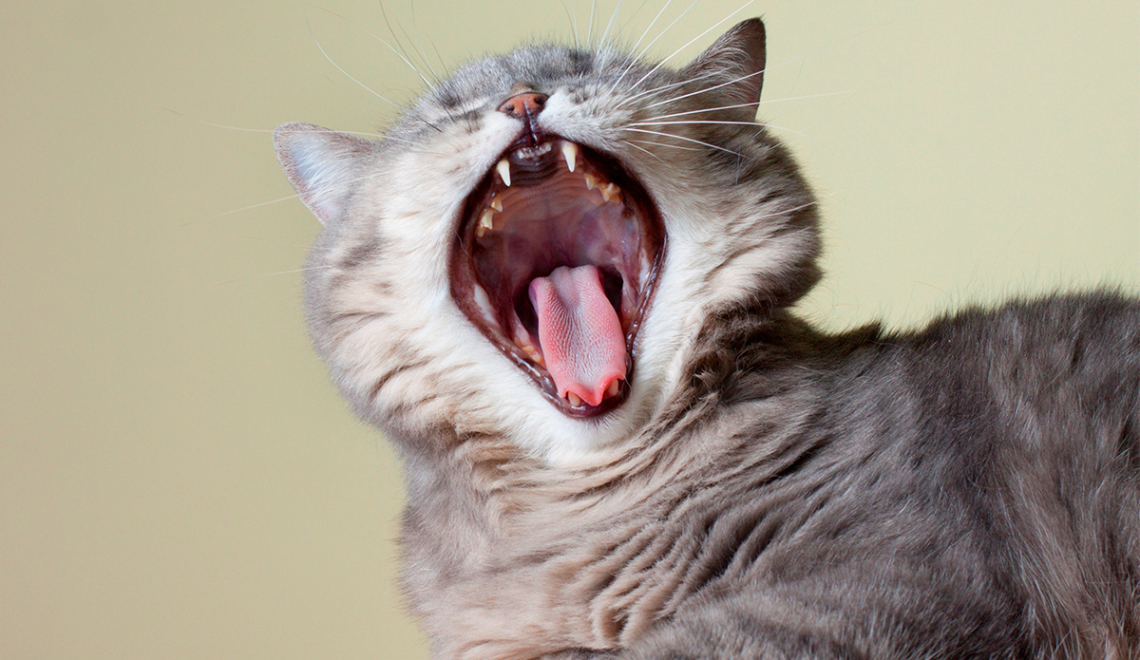4 Tips for Keeping Your Cat’s Teeth Healthy

February is Dental Health Month, serving as a reminder of how important it is to make your pet’s dental care a priority. If left untreated poor dental hygiene can be associated with more dangerous medical conditions such as kidney, liver, heart complications and diabetes. Unfortunately, most cats develop periodontal disease by age three showing symptoms such as swollen gums, increased drooling, whining while eating, loss of appetite, weight loss, bleeding, and loose or discolored teeth. Periodontal disease in pets is a chronic, irreversible condition, which is why taking care of your pet’s mouth before there’s a problem is so important.
Here are some tips for keeping your pet’s teeth as healthy as possible:
Monthly Checks
A monthly examination of the mouth can stop dental problems in their tracks. Things to look for include bad breath, cysts or tumors, missing or loose teeth, redness, inflammation and too much moisture or drool. It’s important to get familiar with your cat’s mouth and desensitize her to touch as early as possible in order to do regular checks and report anything unusual to your vet right away.
Veterinary Visits
Your veterinarian should examine your pet’s mouth at each visit. Many offices even offer tooth and gum cleanings and mouth care services. Many vets are offering these services at a discount during the month of February so this is a great time to make an appointment!
Brush Their Teeth
Brushing your cat’s teeth at home is not as scary as it sounds! Look for pet-specific toothpaste since human toothpaste can upset their stomach. As for brushing, you can use a toothbrush or simply wrap some gauze around your finger. Go slowly and gently as your cat gets used to the consistency of whatever you’re using and the taste of the toothpaste. Make it a fun experience, and try to do it a couple times a week. A regular routine will make training much easier.
Diet
Like humans, a pet’s diet can affect their overall health. There are many cat treats and foods on the market made specifically to help reduce tartar and plaque build-up. Food debris feeds the bacteria that causes gingivitis, so make sure your cat always has lots of fresh water available to wash away any particles left after a meal.
None of us can stand the thought of our beloved pets being in any sort of pain or discomfort, and since cats are notorious for masking signs of illness, it’s up to us as pet parents to remain vigilant about all aspects of their care, including their pearly whites. Preventive care isn’t difficult and the payoff is huge.
About the Author
Melissa Lapierre writes the award-winning cat blog Mochas, Mysteries and Meows from her home in northern Vermont alongside her beloved tortoiseshell cat (and muse) Mudpie.






![Dj Scratch mixing some beats. 🎧 🎶 #Mewsic #KitNipBox
[via Instagram | @dharmacatnitiative]](https://www.kitnipbox.com/meow/wp-content/plugins/instagram-feed/img/placeholder.png)